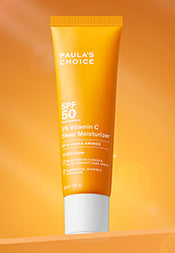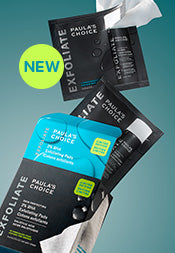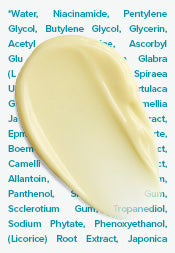Wonders of Facial Oils for Dry Skin - How it Helps
You may have noticed more and more brands are launching pure plant oils like argan, jojoba, coconut, or blends of oils with all manner of tempting claims. But do these facial oils live up to their potential?
The research-supported facts about what plant oils can do for the skin is rather fascinating. They're not miracles, but the right plant oil or a beautiful blend of beneficial oils can make a remarkable difference for dry, flaky, or dehydrated skin; non-fragrant facial oils can be suitable even for eczema-prone skin. Facial oils are for anyone whose skin could use a boost of nourishing, smoothing renewal, especially when seasonal cold or dry climates disturb your skin.
What are Facial Oils?
Facial oils can include any fragrant plant oils (often called essential oils, but they are anything but essential—more on that in a moment), non-fragrant plant oils (your skin will love these) or synthetic oils (such as mineral oil—which gets a bad rap in the world of skincare but for the record, the research doesn't support the negative information you find on the Internet).
Despite the name, these oils can be used anywhere on the face or body—there's no research showing that certain oils are better for one part of your skin or another. Such a notion is without logic or science.
Interesting, money-saving fact: Skincare products that contain single oils, like argan, jojoba, or evening primrose, can be found in all price ranges at the cosmetic counters, but the plainly-packaged single oils you'll find health food stores for a fraction of the price are just as effective.
Are Facial Oils Right for You?
Facial oils are right for you if you struggle with occasional (think seasonal or climate-related dryness) or persistent dry, flaky, or dehydrated skin, and your moisturizer just isn't doing enough, no matter how enriched and emollient it is.
Rather than continually searching for a new moisturizer, you can easily add a facial oil to your routine and see a beautiful difference. Your skin will feel smoother, softer, and more resilient, not to mention taking on a natural-looking glow.
You would use the facial oil under your moisturizer or on its own. This is a great way to use facial oils, but it's important to know that despite the claims you'll encounter, no single facial oil is the best one for your skin, regardless of your skincare concerns, whether it's acne or wrinkles!
Facial oils are helpful for keeping skin's vital hydration locked in, and they have incredible instantaneous skin-smoothing properties. But as wonderful as facial oils are, they don't replace many other essential ingredients for the skin. Think of plant oil or a blend of plant oils as a booster to supplement your skincare routine.
Plant oils are a rich source of antioxidants and replenishing emollients. Still, they're not good sources of skin-restoring ingredients (such as niacinamide, retinol, or peptides) or hydration-boosting ingredients (such as ceramides and hyaluronic acid). Nor do they give dry skin the rich mix of emollients it needs for lasting improvement. That's why we don't recommend replacing your moisturizer with face oil.
Your skin is a complex organ that can never have all of its needs satisfied by a single product or single brilliant ingredient. Think of facial oils as supporting players rather than the leading role in a complete skincare routine.
Which Facial Oils are Best For Dry Skin?
Moisture Renewal Oil Booster! This sophisticated mix blends a variety of research-proven, non-fragrant plant oils into a luxuriously silky concoction for your dry, dehydrated skin to drink in. And you won't see or feel “oily”, just a smooth, hydrated, and supple-feeling, healthy-looking glow!
Facial Oils to Avoid
Watch out for fragrant facial oils, sometimes referred to as “essential oils”, even though they're anything but essential for skin. While these fragrant oils share many of the same benefits for skin as their non-fragrant counterparts, they also come with compounds that have a strong potential to sensitise and aggravate skin, especially when skin is exposed to air (which, of course, is all the time).
As an example, many citrus facial oils can be problematic when exposed to UV light, possibly changing skin colour. Other fragrant oils contain compounds that can oxidise on skin and cause problems. This remains true even if you can't see any changes now because the skin's surface is good at hiding when it's aggravated.
If you're not sure which oils to avoid due to their potential to aggravate skin, the list below covers the most common fragrant oils you're likely to see in facial oil products:
- Lavender oil
- Rose oil (Rosehip oil is non-fragrant)
- Rosemary oil
- Neroli oil
- Sandalwood oil
- Peppermint oil
- Lime oil
- Lemon oil
- Eucalyptus oil
- Jasmine oil
- Geranium oil
- Orange oil
- Orange blossom oil
- Bitter orange oil
- Grapefruit oil
- Bergamot oil
- Ylang ylang oil
Summing it Up
If you have dry skin, mix non-fragrant plant oils into your non-SPF moisturizer or serum, for it is a great way to boost the moisturizing and replenishing benefits of your routine. You can also apply a few drops straight onto the skin (after cleansing, toning, and applying an exfoliant) and then follow with your moisturizer or serum.
There isn't a single best way to apply a face oil—and they can be used with any serum, treatment, AHA/BHA or other product. However, you don't want to mix your face oil into your daytime moisturizer with SPF—doing so dilutes the sunscreen's effectiveness.
Learn more about natural skincare.
Shop Paula’s Choice fragrance-free, non irritating skincare best sellers for dry skin.
References for this information:
Current Allergy and Asthma Reports, July 2016, page 51
Clinical Interventions in Aging, January 2015, pages 339-349
Journal of Chemistry, August 2014, pages 1-8
Skin Research and Technology, August 2012, pages 364-369
Encyclopedia of Chemical Technology, July 2012, ePublication
Planta Medica, March 2006, pages 311-316
Biofizika, March-April 2004, pages 322-338









